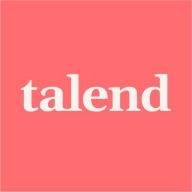

CloverETL and Talend Open Studio are key competitors in the data integration tool category. Talend Open Studio often has the advantage owing to its comprehensive feature set, making it worthwhile compared to CloverETL's robust yet limited offerings.
Features: CloverETL provides a streamlined environment with efficient data transformation solutions suitable for rapid integration tasks. It is tailored for specific use cases with less emphasis on broad functionality. Talend Open Studio, in contrast, offers a flexible integration framework with numerous features adaptable to complex scenarios. This includes a diverse range of components for data mapping, manipulation, and error handling, which supports intricate data workflows.
Ease of Deployment and Customer Service: CloverETL has a straightforward deployment process, making it accessible for smaller teams with limited technical expertise. This ease of use is complemented by solid customer service. Talend Open Studio supports a more intricate deployment model suited for extensive customization and larger enterprises. It offers comprehensive customer support, which facilitates scalability and adaptability for complex organizational needs.
Pricing and ROI: CloverETL is favored for its lower initial setup costs, appealing to startups or budget-conscious businesses seeking swift returns. Talend Open Studio involves a higher initial investment but offers a superior ROI over time due to its expansive feature set and integration capabilities. This potential for greater long-term value makes it attractive to organizations requiring advanced data integration solutions.
| Product | Market Share (%) |
|---|---|
| Talend Open Studio | 2.8% |
| CloverETL | 0.5% |
| Other | 96.7% |

| Company Size | Count |
|---|---|
| Small Business | 22 |
| Midsize Enterprise | 13 |
| Large Enterprise | 18 |
Talend Open Studio is a free, open source ETL tool for data integration and Big Data. The solution enables you to extract diverse datasets and normalize and transform them into a consistent format which can be loaded into a number of third-party databases and applications.
Talend Open Studio Features
Talend Open Studio has many valuable key features. Some of the most useful ones include:
Talend Open Studio Benefits
There are several benefits to implementing Talend Open Studio. Some of the biggest advantages the solution offers include:
Reviews from Real Users
Below are some reviews and helpful feedback written by PeerSpot users currently using the Talend Open Studio solution.
Elio B., Data Integration Specialist/CTO at Asset messages, says, "The solution has a good balance between automated items and the ability for a developer to integrate and extend what he needs. Other competing tools do not offer the same grade of flexibility when you need to go beyond what is provided by the tool. Talend, on the other hand, allows you to expand very easily."
A Practice Head, Analytics at a tech services company mentions, “The data integration aspect of the solution is excellent. The product's data preparation features are very good. There's very useful data stewardship within the product. From a technical standpoint, the solution itself is pretty good. There are very good pre-built connectors in Talend, which is good for many clients or businesses, as, in most cases, companies are dealing with multiple data sources from multiple technologies. That is where a tool like Talend is extremely helpful.”
Prerna T., Senior System Executive at a tech services company, comments, “The best thing I have found with Talend Open Studio is their major support for the lookups. With Salesforce, when we want to relate our child objects to their parent object, we need to create them via IDs. Then the upsert operation, which will allow you to relate a child object to the event, will have an external ID. That is the best thing which keeps it very sorted. I like that.”
An Implementation Specialist, Individual Contributor at a computer software company, states, “I can connect with different databases such as Oracle Database or SQL Server. It allows you to extract the data from one database to another. I can structure the data by filtering and mapping the fields.” He also adds, “It is very user-friendly. You need to know the basics of SQL development or SQL queries, and you can use this tool.”
PeerSpot user Badrakh V., Information System Architect at Astvision, explains, "The most valuable features are the ETL tools."
We monitor all Data Integration reviews to prevent fraudulent reviews and keep review quality high. We do not post reviews by company employees or direct competitors. We validate each review for authenticity via cross-reference with LinkedIn, and personal follow-up with the reviewer when necessary.